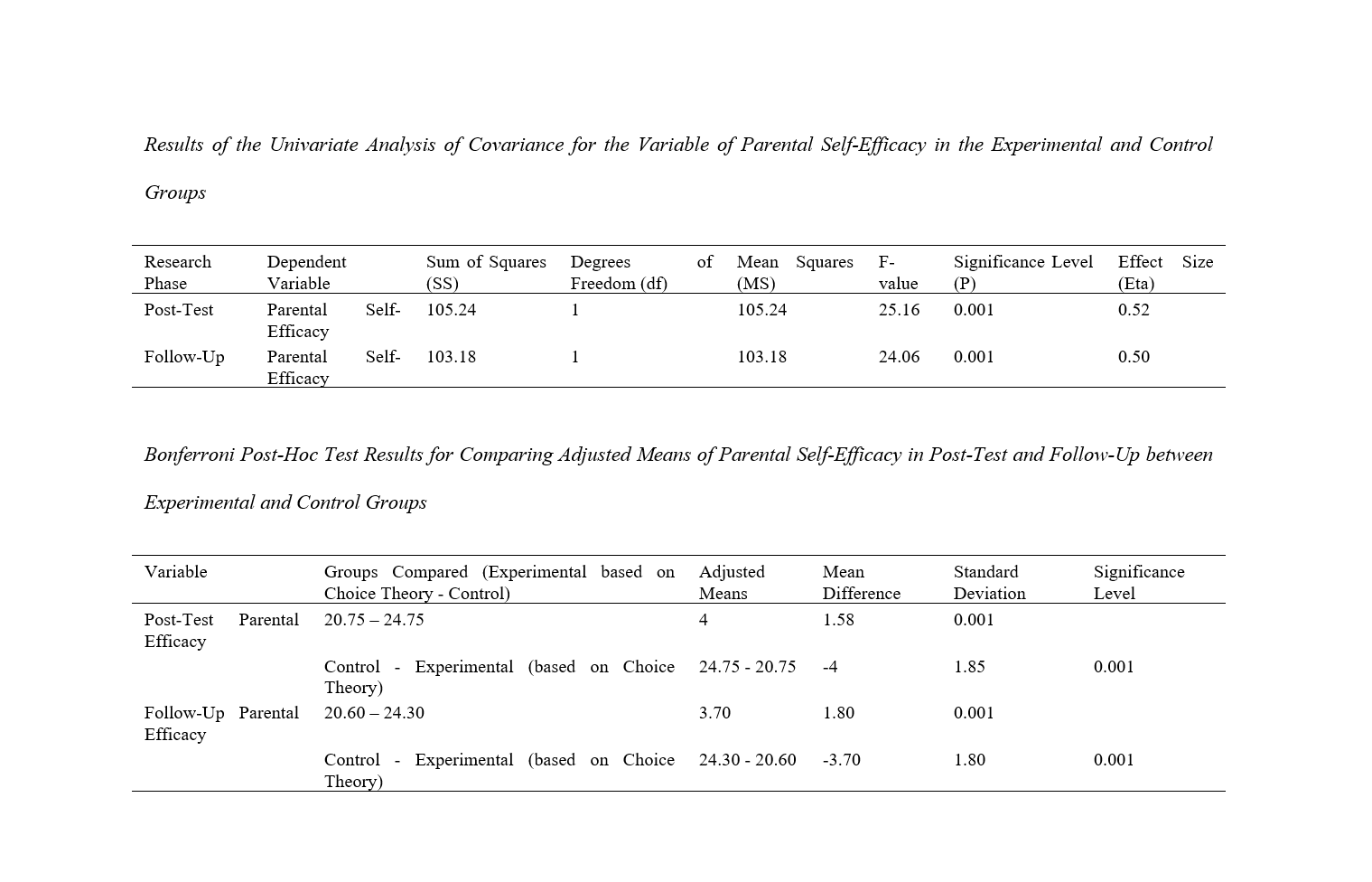The Effectiveness of Choice Theory-Based Parenting Education on Distress Tolerance, Family Cohesion, and Maternal Parenting Self-Efficacy in Mothers of Children with Oppositional Defiant Behaviors
Keywords:
Choice Theory-based parenting, distress tolerance, family cohesion, maternal parenting self-efficacy, oppositional defiant behaviorAbstract
Objective: The present study aimed to examine the effectiveness of Choice Theory-based parenting education on distress tolerance, family cohesion, and maternal parenting self-efficacy in mothers of children exhibiting oppositional defiant behaviors.
Method: This quasi-experimental study employed a pre-test, post-test, follow-up, and control group design. The sample population included all mothers of children aged 7-12 years with oppositional defiant behaviors covered by the Imam Khomeini Relief Committee in Sari during the 2021-2022 academic year. Using purposive non-random sampling based on scores from the Distress Tolerance Scale (Simons & Gaher, 2005), the Family Cohesion Scale (Shakeri, 2003), and the Parenting Self-Efficacy Questionnaire (Dumka, 1996) at pre-test, 30 eligible mothers were selected. These mothers were then randomly assigned into two groups of 15 each (experimental and control groups). Data were analyzed using repeated measures ANOVA with the assistance of SPSS version 27 software.
Findings: Results indicated that Choice Theory-based parenting education significantly improves distress tolerance, family cohesion, and maternal parenting self-efficacy in mothers of children with oppositional defiant behaviors.
Conclusions: Given these results, the use of this educational approach is recommended to enhance distress tolerance, family cohesion, and maternal parenting self-efficacy in mothers of children with oppositional defiant behaviors.
Downloads

Downloads
Additional Files
Published
Issue
Section
License

This work is licensed under a Creative Commons Attribution-NonCommercial 4.0 International License.




















